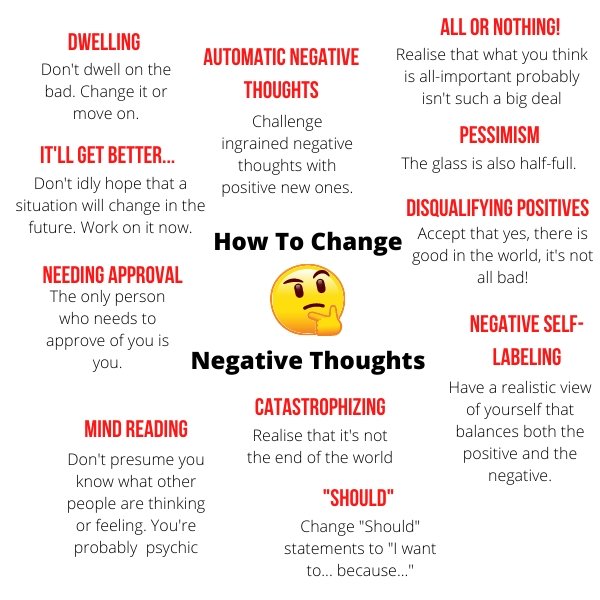
The dangers of FOMO (Fears Of Missing Out). How to not fall into that trap and find happiness in life.
If you all recall the events that transpired during the peak of the pandemic in the real estate market, a situation unfolded where numerous people were competing for homes that were significantly overpriced. Sellers were receiving an excess of 10 to 20 bids, and sometimes even more, all exceeding the listed price by up to $100,000. This frenzy was driven by the belief that missing out on purchasing a home in this red-hot market would result in them losing the opportunity to secure a new home with a 3% mortgage interest rate. Consequently, many new homeowners found themselves outbid and unable to afford the already inflated asking prices. This situation induced a sense of fear of missing out on the limited opportunities available, prompting some to resort to renting, which was also subject to high prices.
FOMO, or the fear of missing out, is a phenomenon that affects a growing number of people. These individuals typically fall into one of two categories: those who overcommit and grapple with fulfilling their commitments, and those who actively avoid making commitments altogether. Their choices are often motivated by the fear that committing to one thing might mean missing out on other opportunities that could offer greater personal satisfaction and fulfillment. Many individuals experiencing FOMO express a shared sentiment: “I prefer to keep my options open.”
Here are some successful methods to steer clear of getting caught in the whirlpool of missing out on what are supposedly “fantastic opportunities.” You won’t feel as though your life is falling apart if you choose not to join the masses who follow the crowd and feel adrift if they don’t follow the herd of sheep all doing the same thing.

- Take it easy.
Many of us operate at a quicker tempo than what’s truly needed or advantageous for our well-being. Try to be more deliberate when eating, driving, conversing, connecting intimately, or handling your daily routines. Placing reminders of this goal in visible locations can be a helpful self-support technique. In the past, we had a sign in our garage with a straightforward message: “Slow Down.” It proved to be effective.

- Pursue the journey, not the status.
There will always be individuals we admire and, at times, feel envious of. It’s the classic “grass is greener on the other side” mentality. Envy can easily transform into resentment unless we acknowledge the opportunities within our own lives to create enriching experiences.
By concentrating on the underlying experience – the sense of achievement, adventure, connection, joy, self-worth, and freedom – rather than fixating on the object or symbol itself – like wealth, marriage, a fancy car, or a luxurious home – we gain the ability to discern true fulfillment from mere momentary pleasure. Pleasure is undoubtedly delightful, but an excessive fixation on it can hinder our capacity to savor the deeper satisfaction that springs from nurturing our inner selves.

- Concentrate on one task at a time.
Even if those around us are juggling multiple tasks, we don’t need to do the same. Since the 1990s, psychologists have conducted experiments on the limits of multitasking, and the findings are clear: Individuals experience significant interference when trying to perform even the simplest tasks simultaneously. The human brain can effectively respond to one task at a time.
When individuals attempt to tackle too many tasks simultaneously, they often don’t succeed. On the other hand, when they concentrate on a single task and give it their undivided attention, they not only have a higher likelihood of achieving a high-quality outcome but also derive greater satisfaction from the task itself.

- Give precedence to relationships over materialism.
When it comes to our overall happiness, the depth and quality of our relationships consistently surpass the quantity of possessions and experiences. Devoting our time and effort to nurturing relationships, along with developing the necessary skills, can be one of the most effective ways to introduce greater levels of satisfaction into our lives. This serves as a fantastic remedy for the compulsive behavior often associated with FOMO.

- Foster a mindset of thankfulness.
Rather than pursuing dreams we think will bring us contentment, we can nurture a sense of gratitude. This approach enables us to gain a deeper appreciation for what we currently possess, as opposed to fixating on what we’re missing or yearning for. FOMO stems from the fear of lacking something essential for our well-being. Gratitude empowers us to acknowledge the blessings in our present life, in the here and now, where life is unfolding.

- Enjoy the ride.
Incorporating these habits into your life can become a joyful endeavor, seen as a gift and an avenue for growth, rather than a set of responsibilities. Allow yourself to relish the increased sense of calm and simplicity that these practices bring into your life. Remember, it’s not just you who reaps the rewards; everyone in your life benefits from shedding FOMO!
Falling victim to the clutches of FOMO occurs because many people have a tendency to observe those who are engaged in activities they hadn’t considered, and because of these observed actions and behaviors, they often emulate them by replicating them. The feeling of missing out on something doesn’t typically arise spontaneously unless one witnesses others eagerly seizing opportunities that may not be suitable for them. It’s important to shift your attention to what truly matters to you and avoid investing time in imitating others just because it’s a current trend. Prioritize what brings you happiness, and remember that sometimes, less is more.
Learn More
Why is self-awareness the stepping stone to your life’s success?

In our constantly changing world, the path to success can seem intricate and varies from person to person. Success isn’t solely measured by material wealth; rather, it often revolves around pursuing activities we are passionate about, regardless of their financial outcomes. Many Americans dislike their jobs and eagerly await retirement or weekend plans, leading to a drop in productivity. However, they may not realize that alternative options exist. While family responsibilities can contribute to this situation, it’s crucial to acknowledge that prolonged unhappiness can have negative psychological effects.
Living in a massive mansion, as a way to “keep up with the Joneses,” may not be necessary. Instead, the key is to prioritize your happiness and self-awareness, as these elements are essential for improving your overall quality of life.
Furthermore, self-discovery serves as the foundation for personal growth and achievement. This process involves exploring our values, strengths, passions, and weaknesses. Without self-awareness, it becomes challenging to set meaningful goals and stay motivated. Self-awareness also encourages self-reflection through practices like meditation, journaling, or contemplation, which can provide clarity and help align our actions with our authentic selves.

Setting Meaningful Goals
After establishing a strong connection with your inner self, cognitive behavior psychotherapists with expertise recommend creating objectives that deeply align with your core values and passions. This alignment serves as a wellspring of enduring motivation and unwavering dedication to pursuing your dreams wholeheartedly. Dr. Dan’s approach involves breaking down these objectives into smaller, attainable tasks. This not only simplifies the journey, making it less daunting, but also offers opportunities for frequent milestones. These milestones play a pivotal role in maintaining motivation and ensuring steady and consistent progress toward your goals.

Overcoming Limiting Beliefs
Limiting beliefs often present a significant hurdle on the path to success. These beliefs typically originate from a fear of failure, acting as barriers that impede your progress toward achieving your goals. It’s crucial to distinguish limiting beliefs from recognizing your current skill set. We are not suggesting that individuals with backgrounds in philosophy or dentistry suddenly aim to construct a rocket ship for a mission to Mars. It’s essential to be self-aware of your skill set and avoid setting unrealistic expectations.
Moreover, enhancing your skills through daily practice can significantly boost your capacity to succeed in your chosen field and expedite your progress toward your goals. To expedite your journey, it’s beneficial to practice self-compassion. Instead of harshly criticizing yourself when facing perceived failures, it’s important to treat yourself with kindness and understanding. If the opportunity arises, seeking guidance and support from mentors, coaches, or trusted friends can also be invaluable in your pursuit of success, tailored to your unique path.

Dealing with setbacks
Facing setbacks is an inherent aspect of any undertaking. Instead of viewing failure as a negative outcome, it can be seen as a valuable opportunity for personal growth and learning. Consider the acronym “FAIL” as an acronym for “First Attempt In Learning.”
While any form of failure may appear to be influenced by your thoughts and actions, it’s crucial to adopt an approach that involves impartially examining setbacks. What can you learn from these experiences, and how can you adapt your approach going forward? By reframing setbacks as stepping stones rather than insurmountable obstacles, you’ll maintain the resilience needed to persevere in your pursuits.

Boosting Self-Confidence
Confidence plays a pivotal role in the journey to success, and each small triumph is a chance to celebrate your accomplishments, no matter how modest they may seem. Recognizing your progress nurtures a positive self-image and reinforces your belief in your capabilities.
It’s also essential to emphasize the significance of maintaining positive self-talk. By replacing self-defeating thoughts with affirmations and constructive language, you can transform your self-perception. Confidence is a skill that can be developed and cultivated over time.
In the same way that happiness is not a destination but rather a continuous journey, success follows a similar principle. Success is more of a voyage marked by self-discovery and growth. By adhering to this straightforward principle, you can embark on the path of self-discovery, set meaningful goals, overcome self-doubt, navigate setbacks, and build the confidence needed to achieve your aspirations. Success begins with embracing your authentic self.
Learn More
Taking self-criticism to the extreme: Strategies on how to exit this loop of negative self-thinking
Most psychologists would agree with this statement: “We are our own worst self-critic”. Thich Nhat Hanh shared a beautiful quote: “To be beautiful means to be yourself. You don’t need to be accepted by others. You need to accept yourself”
This quote highlights the significance of setting high standards and pursuing personal growth by accepting oneself without relying on validation from others. However, it cautions against self-imposed expectations that result in self-criticism and negative self-talk. It emphasizes how many individuals carry regrets and unfulfilled aspirations due to feelings of un-worthiness or un-deservingness.
Our internal dialogue often tends to be more critical compared to how we communicate with others. This pattern of negative self-talk can be incredibly damaging, often more than we realize. The issue lies in the fact that we have become so accustomed to this negative inner dialogue that we are not even conscious of it. Despite our lack of awareness, our mental and physical well-being are still affected by this harmful self-talk.
The aim of avoiding self-criticism is to learn to value oneself based on personal beliefs rather than seeking external validation. Breaking free from a shame-based self-image and the need for self-criticism and hateful self-talk becomes crucial in order to avoid falling into depression, which can hinder progress and success. There are several strategies for silencing the inner critic and breaking free from this cycle of detrimental thoughts that restrict belief in one’s own potential for success. The ultimate goal is to develop self-approval, self-love, positive relationships, and a sense of self-worth.

Strategy 1: What are your authentic wants and desires? What activities, passions, goals, needs, and wishes truly resonate with you? Take the time to identify and make a list of these, and honestly evaluate whether pursuing them would genuinely bring you a sense of fulfillment and joy.

Strategy 2: Practice mindfulness by observing your actions, reactions, and how others respond to you without passing judgment. Embrace self-acceptance and refrain from labeling yourself negatively. Deliberately cultivate positive emotions to break free from the habit of labeling yourself based on feelings of shame.

Strategy 3: Reduce self-criticism by acknowledging that making mistakes is a normal part of being human and doesn’t diminish your worth or intelligence. Develop a more objective perspective on your abilities and actions through self-compassion. Actively nurture positive emotions and gradually increase self-approval.

Strategy 4: Pay attention to your internal dialogue and be mindful of the language you use, as language holds significant power. Your internal dialogue is a reflection of your beliefs about reality. Monitor and consciously observe how you speak to yourself because your mind is receptive. If you wish to change your emotional state, simply reframe your thoughts and say, “I won’t allow these feeling of negative self-talk” or “I choose to only accept positive affirmation to enter my mind.” By doing so, you empower yourself to take control of your emotions.

Strategy 5: involve identifying your disappointments by understanding where they come from, examining the expectations that have led to those disappointments (whether self-imposed or from others), and evaluating if those expectations are truly valid. (obviously the image listed above is just a sarcastic narrative to what severe disappointment may mean to some people)
There is no magic solution to completely reverse the feelings of self-criticism and ongoing self-inflicted torment we subject ourselves to. Through constant comparisons with others on social media, we intensify this process, leading to heightened levels of anxiety and depression. We consciously allow this to happen, and we cannot blame anyone else but ourselves for permitting it. While it is true that some individuals have to deal with negative and toxic coworkers or family members who constantly belittle them, most of the time we inflict these hardships upon ourselves. It is important to initiate changes today to prevent long-term mental harm that can hinder our success and undermine our well-being.
Learn More
Life coaching is NOT just for adults. Here is how teens can greatly benefit from the wisdom of life coaches. Might as well start them young gaining valuable life’s skills.
Teenagers are facing a wide range of difficult challenges in today’s world, many of which are unique to their generation. As a generation X or Y, we are not familiar with the struggles they are now facing, hence, not understanding how to properly communicate with the younger generation, which end up creating some sense of resentment on their end. Let’s discuss some of these reasons why some may suffer more than others:

Social media and technology: With the rise of social media and technology, teenagers are more connected than ever before. While this can have many benefits, it also means that they are constantly exposed to negative influences and cyberbullying. Additionally, social media can contribute to feelings of isolation and anxiety.

Academic pressure: The pressure to perform academically is higher than ever before. College admissions have become increasingly competitive, and the stakes feel higher for teenagers than ever before. This can lead to stress, anxiety, and a focus on achievement over personal well-being.

Mental health: Mental health issues are on the rise among teenagers, with rates of anxiety and depression increasing in recent years. This may be due to a range of factors, including increased pressure to succeed, social media and technology use, and changes in family dynamics.

Peer pressure: Peer pressure has always been a part of teenage life, but today’s teenagers are facing new challenges in this area. The pressure to fit in and conform to social norms can be intense, and the consequences of not doing so can be severe.

Family dynamics: Changes in family dynamics can also contribute to the challenges teenagers face. Divorce rates are high, and many teenagers are growing up in single-parent households or blended families. These changes can lead to feelings of instability and uncertainty.

To change some of these outcomes, bringing in a life coach in their lives can drastically and positively render amazing results. Life coaching is a process of assisting individuals in identifying and achieving their personal and professional goals. While it is true that many adults turn to life coaches to help them navigate life’s challenges, life coaching can also be immensely beneficial for teenagers.
Teenagers face a unique set of challenges as they navigate the transition from childhood to adulthood. They may be dealing with issues related to self-esteem, identity, relationships, academic performance, career aspirations, and other significant life decisions. A life coach focused on teenagers can help them work through these challenges by providing guidance, support, and a safe space to explore their thoughts and feelings.
Here are some reasons why teenagers can benefit from working with a life coach through an extensive and focused life coaching program:

Improved self-awareness: A life coach for teenagers can help them gain a better understanding of themselves and their strengths, weaknesses, values, and beliefs. By developing self-awareness, teenagers can make more informed decisions about their lives and their goals.

Goal setting and planning: Life coaches focused on teenagers can help them better identify and set achievable goals for themselves. They can also assist with developing action plans to reach those goals, providing accountability and motivation along the way. A teen’s life coach is more about long term goal that will get them to excel all through high school and college.

Improved communication skills: Teenagers may struggle with communicating effectively with their peers, parents, and teachers. A life coach focused on teenager’s life skills can help them develop better communication skills, which can lead to improved relationships and greater success in all areas of their lives.

Stress management: A life coaching program set for teenagers who are often faced with a great deal of stress, whether it be related to school, family, or social pressures, can be of a good tool to managing their struggles. A life coach for teenager can provide tools and techniques for managing stress and building resilience.

- Improved decision-making skills: Most teenagers struggles with making important decisions about their lives. The teens life coach is often focused on providing guidance and support, helping them make informed choices that align with their values and goals.
As we can now realize that life coaching isn’t just for adults looking to make a career change or dealing with mid-life crisis, but teenagers can also benefit greatly from working with a life coach. By developing self-awareness, goal setting, and planning skills, improving communication skills, managing stress, and improving decision-making skills, teenagers can set themselves up for success in all areas of their lives.
Learn More